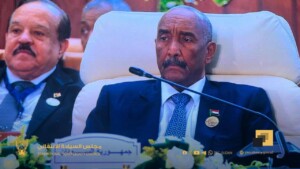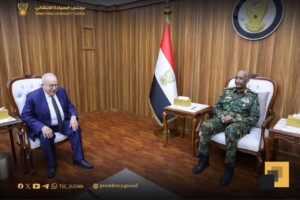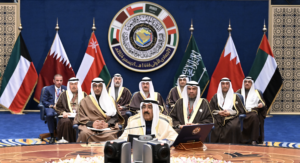Sudan peace talks: Progress on appointing state governors
Both the Darfur Bar Association (DBA) and the Sudanese Professionals Association (SPA) have endorsed the appointment of civilian state governors. The Sudan Revolutionary Front (SRF) in principle agreed on appointing civilian state governors but emphasised new selection standards.
 Peace talks via video conferencing (Social media)
Peace talks via video conferencing (Social media)
Both the Darfur Bar Association (DBA) and the Sudanese Professionals Association (SPA) have endorsed the appointment of civilian state governors. The Sudan Revolutionary Front (SRF) in principle agreed on appointing civilian state governors but emphasised new selection standards.
In a statement, the DBA calls for 30 per cent of the civilian state governors to be women. “Women should also participate in all other institutions with the same percentage,” the statement added.
The DBA also stated that there must be standards in choosing the state governors such as experience in administration. The chosen person must be from the state concerned and represent the values of the revolution.
The statement emphasised that “appointing the civilian state governors during the truce period does not in any way prejudice the rights of any of the parties involved”. The DBA explained that the way the states are currently ruled only reinforces the deposed regime. It also hinders the ongoing efforts to dismantle the ‘deep state’.
Over the last months, the appointment of civilian state governors remains the main outstanding issue between negotiating parties in the ongoing peace talks in Juba. While the FFC advocated appointing civilian governors as soon as possible, the SRF opposed this, saying that it has been agreed that their appointment is to be negotiated first with the armed movements.
A week ago, the transitional government and FFC had a crucial meeting, where they agreed on several issues including appointing civilian state governors and legislative councils. The SRF complained that they were not included in the meeting, and thus they would not comply with the outcome of the meeting.
Civilian governors
The Sudanese Professionals Association affirmed its support for the appointment of state civilian governors. The SPA considers the appointment as a continuation of the transitional authority structures and an achievement to the objective of the December Revolution.
In a statement, the SPA explained its support to the decision regarding the appointment of civilian governors in all states where the candidates have been agreed upon with the Forces for Freedom and Change. The selected candidates should be subject to review in accordance with the ongoing peace process.
The SPA revealed that there are four states, Khartoum, Northern State, North Darfur, and Central Darfur, where consensus has not yet been reached. These four states must be subject to review in the process of selecting civilian state governors.
In its statement, the SPA reiterated its continuous support for the accord agreed upon among the ruling partners. The implementation mechanisms should not be an excuse to suppress the legitimate rights of the states in choosing the right person to rule.
Joint mechanism
The Sudan Revolutionary Front (SRF) alliance of armed movements proposed the formation of a joint mechanism from the Sovereign Council, the Cabinet, the SRF and the Force for Freedom and Change (FFC) to review the outcome of the last meeting regarding the appointment of civilian governors.
In a press conference on Monday, Jibril Ibrahim, Secretary-General of the SRF, told reporters that SRF does not oppose the appointment of civilian state governors and the dismantling of the deep state. “However, SRF will not reinforce similar new empowerment associated with narrow political partisan affiliations. Hence the SRF objects the appointment of civilian state governors based on the FFC’s perspectives because it violates the Juba Declaration,” Jibril said.
Jibril explained that the method that the FFC has followed in appointing civilian state governors lacks the objectivity. This will not bring strong and capable civilian state governors who can maintain security and provide the necessary services to people. There must be criteria for selecting competent and well-experienced individuals who can govern the state properly. The criteria must take into consideration the geographical diversity and the participation of women. What the FFC in Khartoum agreed on is nothing but political partisan affiliations.
Also, at the press conference, Jibril pointed out that the newly formed High Peace Council was not included in the Constitutional Document. “Plus, it includes people who are not pro-peace. The opinion of the SRF was not taken into consideration. Therefore, this new council does not represent us,” Jibril said.
Jibril further explained that SRF has conducted extensive contacts with Prime Minister Abdallah Hamdok and a number of the members of the Sovereign Council regarding this issue. “They have a great understanding of our positions. We are still communicating with other political parties to build a unified national consensus on all important issues,” Jibril concluded.
Radio Dabanga’s editorial independence means that we can continue to provide factual updates about political developments to Sudanese and international actors, educate people about how to avoid outbreaks of infectious diseases, and provide a window to the world for those in all corners of Sudan. Support Radio Dabanga for as little as €2.50, the equivalent of a cup of coffee.












 and then
and then